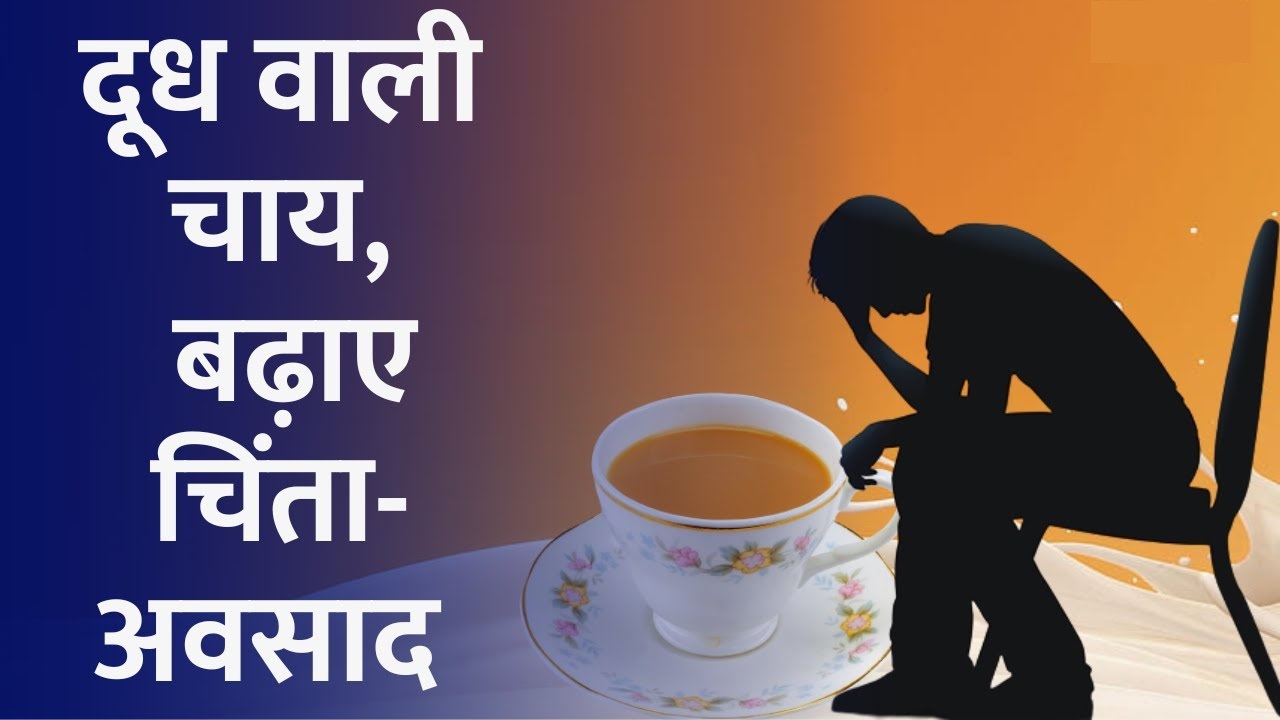A recent study has shed light on a concerning connection between milk tea consumption and mental health issues. The findings of research by Tsinghua University and the Central University of Finance and Economics in China have been startling, saying that tea consumption gives rise to addiction and is significantly linked to depression, anxiety, and even thoughts of suicide, especially in adolescents and youngsters.
New Delhi: Millions across the world wake up in the morning with their favourite hot cuppa in hand. According to statistics, tea is among the most consumed beverages worldwide after water and is loved by more than two-thirds of the world’s population.
And if you are one of the many people who regularly sip tea and are wondering what this habit is actually doing to your body, there is a piece of not-so-good news attached to it.
Despite its many benefits, a recent study has said milk tea consumption is linked to mental health issues and reduced social interaction among adolescents. Researchers from Tsinghua University and the Central University of Finance and Economics in China surveyed 5,281 college students from Beijing, finding that symptoms of milk tea addiction were not only real but linked to problems like increasing depression and anxiety.
Milk teas, which include the one made with tea leaves and different varieties like bubble tea are superbly popular in many parts of Asia, including India, especially among youngsters.
Scientists say the popularity is also raising health issues.
Tea causes addiction
According to the study, youngsters are increasingly turning to tea as a way to cope with their emotions and regulate their mental well-being. In this context, these beverages lead to addictive behaviors and have detrimental effects on mental health.
“Milk tea has experienced tremendous growth in popularity in China, especially among youths,” the researchers wrote in their published paper.
“Our findings highlighted that milk tea consumption might lead to addiction, and it is associated with depression, anxiety, and suicidal ideation,” they added.
The study findings also indicate that milk tea consumption exhibits addictive characteristics which include frequency of consumption, dependency, intention to quit, inability to quit, and associated guilt.
“The results indicate that milk tea consumption might lead to addiction symptoms, including frequency, dependence/craving, intention to stop, unable to stop, tolerance, and guilty feelings,” the researchers said.
To measure the scale of addiction, researchers say they studied factors like cravings and over-indulgence, which most young people had. Almost half of those surveyed said they had at least one cup of milk tea a day.
Researchers say apart from deterioration in psychological health, increased tea consumption also leads to obesity and dental decay. One of the main reasons cited for that included caffeine and sugar, which cause social isolation, low mood, and even anger issues.
Side effects of caffeine
According to Healthline, consuming too much caffeine can cause:
- Insomnia
- Muscle breakdown
- Digestive issues
- High blood pressure
- Rapid heart rate
- Fatigue
- Frequent urination
Disclaimer: Tips and suggestions mentioned in the article are for general information purposes only and should not be construed as professional medical advice. Always consult your doctor or a dietician before starting any fitness programme or making any changes to your diet
